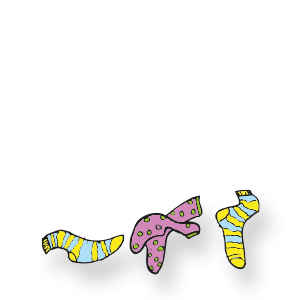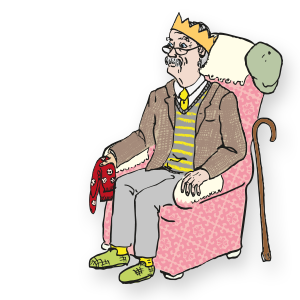

It's time to ditch the labels

In a world where everyone is put into boxes, it’s time to ditch the labels and start treating people like people. As a SEND parent, I know all too well the emphasis on labels, assessments and diagnosis but do they help? Written by Stephanie Hall, Ollie Coach trainee.
Do labels help?
The short answer is sometimes, but that’s not necessarily what you want to hear.
I think rather than focusing on the label it is important to understand the individual’s needs and work from there. I am sure that I am not alone in feeling the pressure that comes with being labelled, for example, parent, wife or employee. And the frustration at being labelled in a way we feel is not representative of who we are or what we are capable of. Being described as dyslexic or depressed, or using one of the many acronyms out there like ADHD (Attention Deficit Hyperactivity Disorder), ASD (Autism Spectrum Disorder) et cetera often eclipses the person it is being used to describe. By being labelled in this way a person can feel that this becomes who they are and not simply a part of them.
Why is this a problem? Well perhaps for some people it isn’t but when we start to identify as these parts of ourselves, for example, I am depressed or I am ADHD this can create issues much greater than the challenges the label is being used to describe. Seeing yourself as your condition can become self-limiting and create problems around your identity, self-worth and your beliefs about who you are. Living in this reality can negatively affect your wellbeing and lead to secondary conditions such as anxiety, depression and low self-esteem. This can also apply to other labels we are given by others, or ourselves, like being seen as too much in some ways or not enough in others. But it doesn’t have to be this way.
Even if two people are diagnosed, or labelled in some way, with the same condition it doesn’t make them exactly the same. Yes someone may have ASD, but as the name suggests this is a spectrum and this can apply to most conditions and disabilities. Not only can the severity or challenges experienced vary from person to person, but other factors such as their ability to cope, their support network, their environment, the attitudes of those around them, their age, gender, socioeconomic status and race can all affect how they “do their problem”. And this herein is where the difficulty with labels can arise. We can’t presume that everyone effected will respond or present in the same way because we can’t know what their personal experiences have been. They are unique to them and so labels can give false assurances and result in unhelpful or damaging assumptions.
But it doesn’t have to be like this. I am not suggesting that we remove all labels because having a point of reference can be helpful for professionals trying to help or support someone. It can also help people to understand themselves, to not feel so alone, to be able to access resources and help those around them understand the challenges they face. But if we could recognise that every person is made up of many parts and that no one part is the entire sum of a person this would go a long way to ending stigmatisation and treating people with the dignity and respect they deserve. If instead of putting people in boxes we understand the needs of the individual and celebrate their unique approach and interpretation we could benefit from their view of the world and they in turn would be empowered to achieve their dreams and fulfil their potential.
Stephanie Hall, Ollie Coach trainee
Stephanie is a trainee Ollie Coach, SEND parent, wife and connector. She is passionate about human connections and supporting people to feel fulfilled, seen and heard. Her insatiable appetite for learning and capacity for empathy has led her to become a coach after a successful and varied career path including working with children, families and adults and running her own companies. Having overcome her own challenges, including a rare chronic illness which left her bedridden for 6 months, she is compelled to help others to take control of their own lives by empowering them to access their inner resources and live the life they deserve.
To get in contact with Stephanie, email info@ollieandhissuperpowers.com

